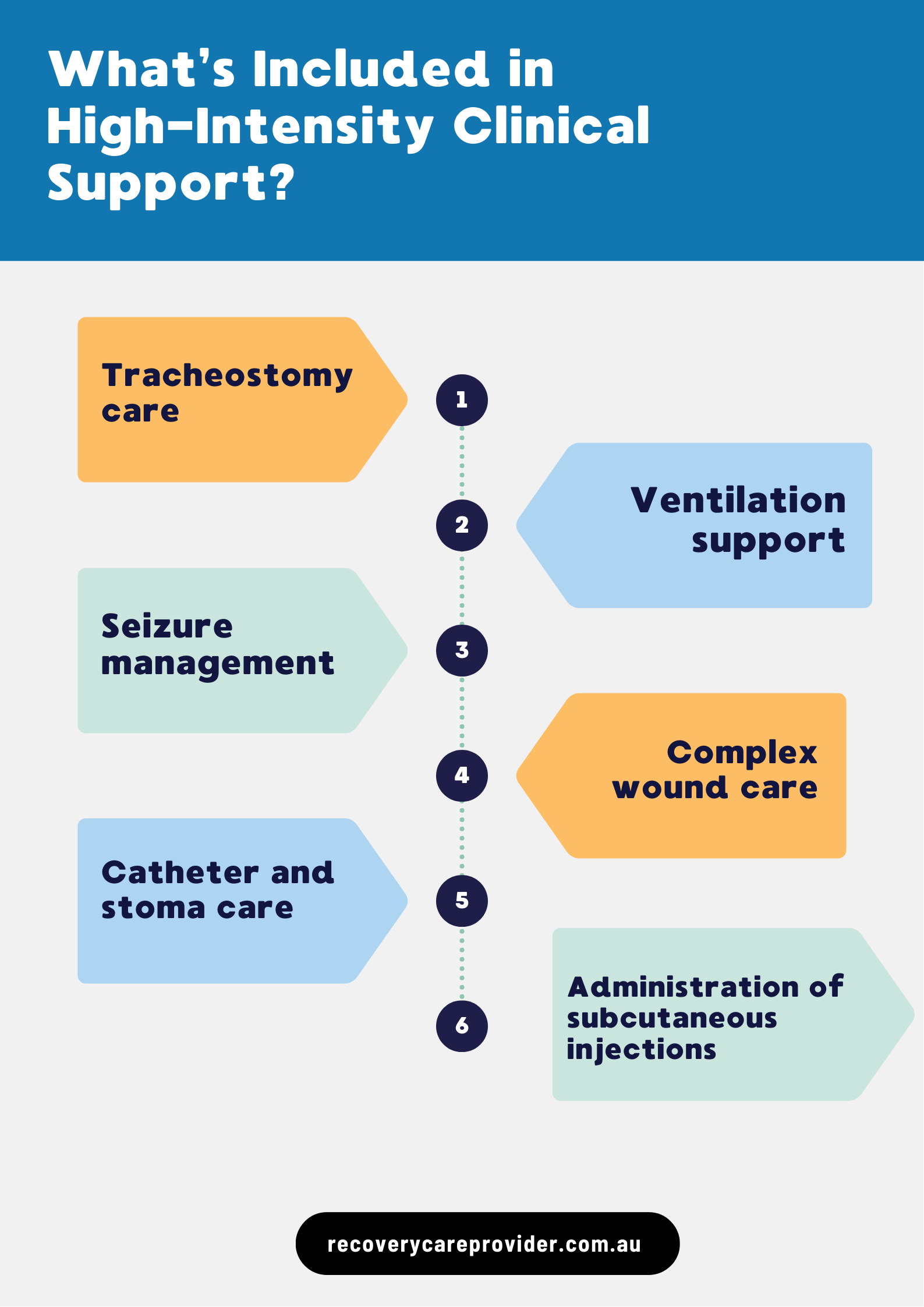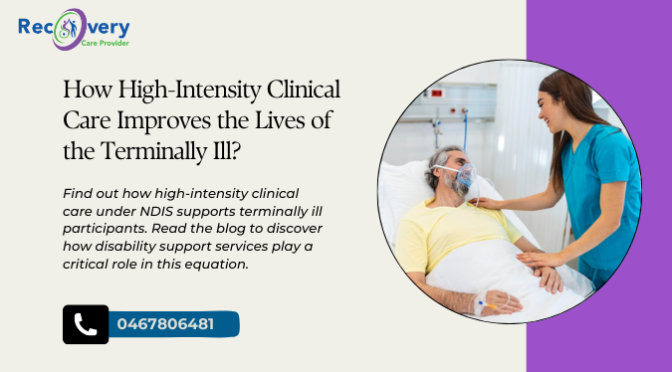Caring for people with terminal illnesses requires more than just medical support — it demands clinical-level precision, compassion, and specialised care. For participants under an NDIS provider in Victoria Park, high-intensity clinical care provides a critical lifeline, delivering complex nursing services in a way that elevates your quality of life while respecting personal boundaries and dignity.
This specialised care is designed by the NDIS for people with very high support needs or terminally ill participants, ensuring they receive all the care they need. The assigned support workers will ensure that your loved ones can remain in as much comfort as possible, all the while receiving respectful and dignified support.
What’s Included in High-Intensity Clinical Support?
Among other disability support services in Victoria Park, high-intensity clinical support is one of the most critical forms of support. This care is delivered by trained nurses or support staff who are competent to handle procedures, like:
1. Tracheostomy care
2.Ventilation support
3. Seizure management (including administering emergency medication)
4. Complex wound care
5. Catheter and stoma care
6. Administration of subcutaneous injections
These disability support services in Perth can be provided to the participant’s homes, out in the community, or alongside palliative care to ensure continuity of support.

Why is High-Intensity Clinical Care Important?
For those with terminal illnesses, we offer not just medical interventions — we create the conditions for a peaceful, comfortable, and dignified life. Here’s how this intervention makes a difference:
01. Pain and Symptom Management
Certified nursing skills help in managing chronic pain, breathing difficulties, nausea, or other symptoms that can cause terminal illnesses. Timely interventions reduce discomfort and help maintain a participant’s comfort levels.
02. Reducing Hospital Admissions
With high-level care provided at home, participants can avoid unnecessary hospital stays. This not only eases emotional stress but also allows them to spend more time in familiar surroundings with loved ones.
03. Personalised Care Plans
Every participant’s condition and goal is unique. A disability services and support organisation works closely with healthcare teams and your family to tailor care plans that respect your wishes while ensuring clinical needs are met.
04. Emotional and Psychosocial Support
Living with a terminal illness impacts more than physical health. Skilled nurse attendants also provide emotional reassurance, supporting both the participant and their family through hard times.
05. Integration with Palliative Services
High-intensity clinical care also complements palliative care, making sure that medical needs and comfort-focused interventions work hand-in-hand. This holistic approach helps improve end-of-life experiences.
How Do Participants Benefit From High-Intensity Clinical Care?
Participants who are undergoing this support under our NDIS provider in Victoria Park experience:
1. Greater independence is achieved by allowing care to take place at home.Consistent monitoring to detect and respond to changes quickly.
2. Access to trained professionals who can handle complex and emergency.
3. Family respite as loved ones can rely on expert care without feeling solely responsible.
4. Lastly, high-intensity clinical care empowers your loved ones to make the most out of the remaining time, focusing on developing meaningful connections.
Frequently Asked Questions
1. Is high-intensity clinical care the same as palliative care?
Not exactly. While both focus on improving your quality of life, high-intensity clinical care is more clinically focused, navigating complex health needs. However, it can work alongside palliative care for all-round support.
2. Can high-intensity clinical care be provided at home?
Absolutely. An NDIS provider in Victoria Park delivers these services in-home, allowing participants to remain in familiar surroundings.
3. Are your nurses qualified enough to provide high-intensity clinical care?
Yes, of course! Our nurses are specially trained to meet the strict NDIS Practice Standards for high-intensity support required in this kind of service.
We’re Offering Care Where it is Needed the Most
Reach out to Recovery Care Provider for high-intensity clinical care that you can rely on. Call 0467 806 481 to schedule a consultation with our team.










